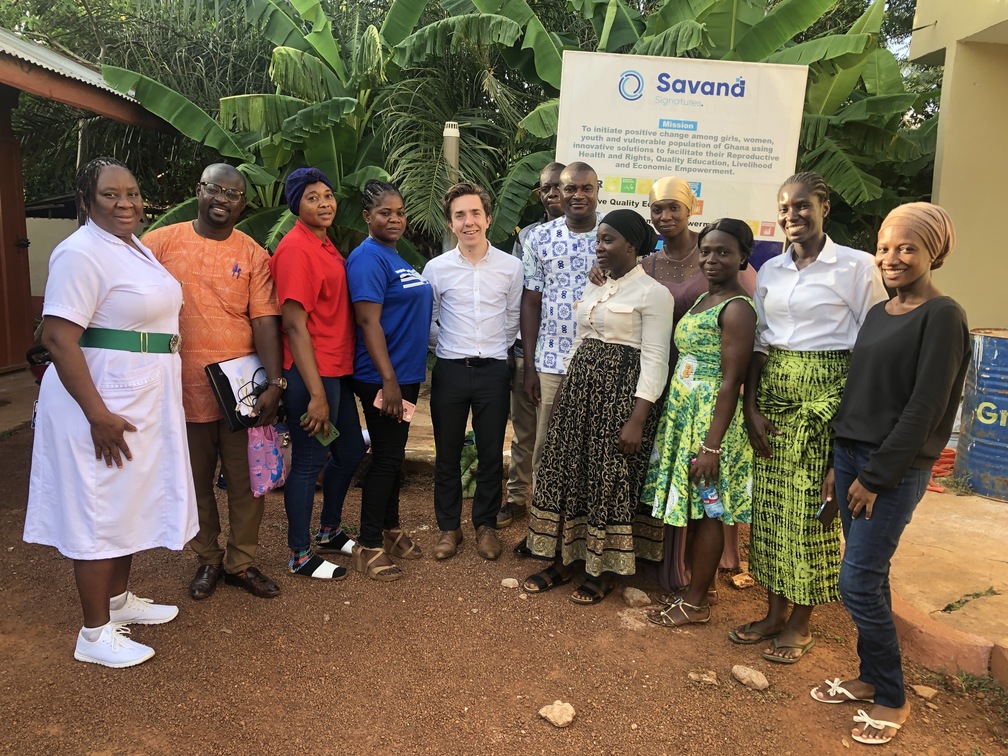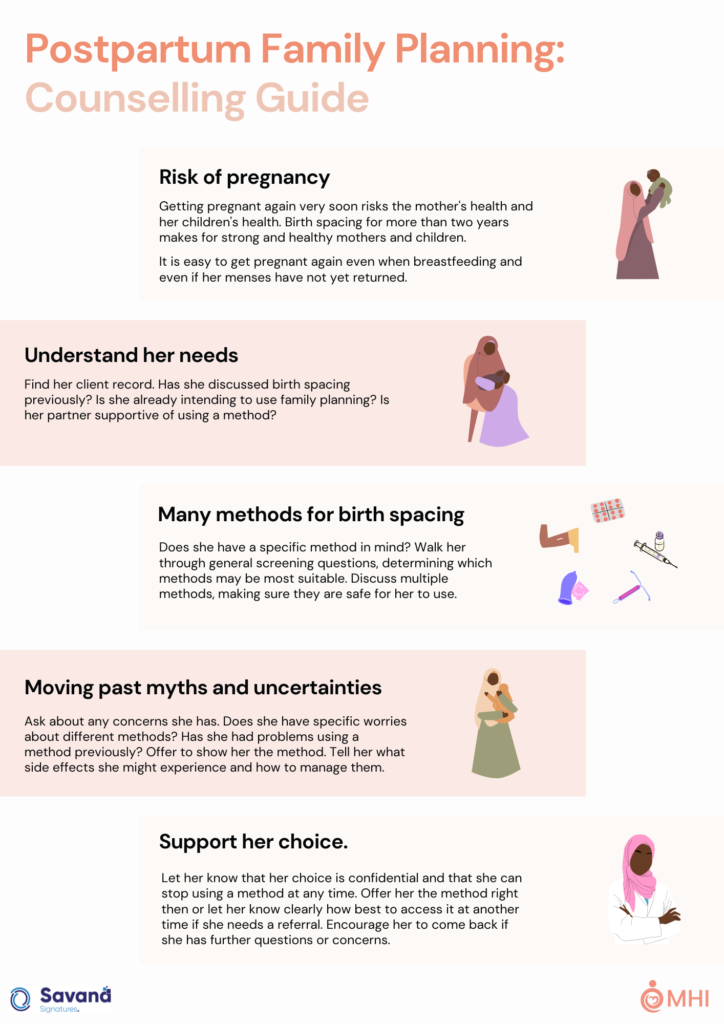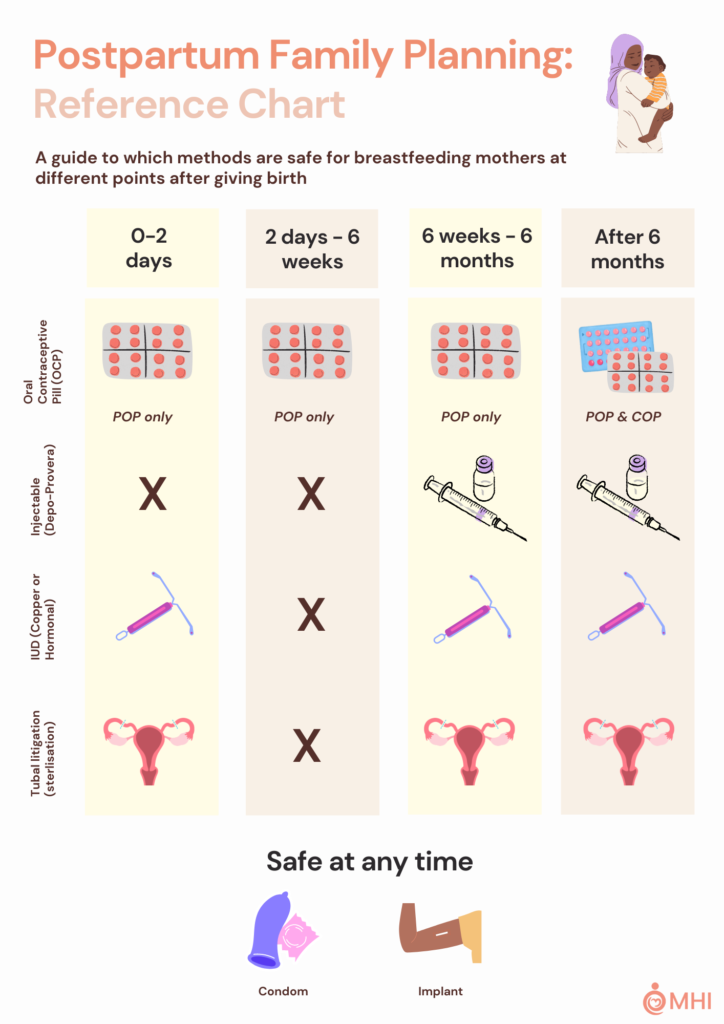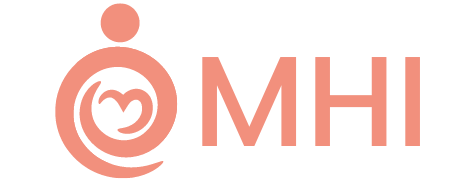Proof of Concept
An overview of MHI’s first ‘Proof of Concept’ project, delivering training for providers from six facilities in Ghana’s Northen Region.
When?
Where?
Key Result
April-July 2023
Six facilities in Ghana’s Northern Region
Provisional 15% increase in rate of contraceptive use in the three months post-training at facilities where data was available

Summary
- Maternal Health Initiative (MHI) is aiming to increase the use of family planning by providing high-quality training to frontline staff
- Tests show a sustained improvement in provider knowledge as a result of our first training sessions
- Initial data suggests an increased uptake of family planning by women attending facilities where staff attended these sessions
- Training sessions catalysed a range of other activities from health facilities, including radio messaging and community engagement drives
- This project was conducted in partnership with Savana Signatures, with assistance from Aunty Theodora Asutane of the Regional Health Directorate
Overview
Context
In Ghana’s Northern Region, GHS statistics indicate a declining family planning acceptor rate over recent years (2018: 31.4%; 2020: 28.2%; 2022: 25.5%), leaving it short of the national target of 40%, and behind other nearby regions (e.g. North East was 35% in 2022). One potential barrier to higher rates of family planning is the quality of counselling, with women not being adequately informed about potential side-effects (Rominski et al, 2017), and low levels of shared decision-making (Advani et al, 2023).
MHI’s aims and general approach
MHI is aiming to support the Ghana Health Service in its aim to increase the use of family planning. We are achieving this by providing high-quality training to frontline staff involved in providing postnatal care (PNC) and delivering Child Welfare Clinics (CWC).
Our training focuses on maximising the quality of information shared by providers of family planning counselling, as well as supporting the delivery of family planning counselling in 1:1 sessions between a provider and a client. As part of this training, providers are given materials that they can take back to their facilities and use when they engage with clients.
Existing evidence
MHI’s approach is supported by a wide range of published research. For example, Tran et al. (2019) found that refresher training and the provision of a counselling tool significantly increased postpartum contraceptive use. Positive outcomes have also been reported in Ghana (Asah-Opoku et al, 2023), Egypt (Ahmed et al, 2013), Malawi (Cooper et al, 2020), and Liberia (Cooper et al 2015).
Training Implementation
In this proof of concept study, 22 staff were trained across 2 separate sessions in April 2023, with each session lasting one day. Providers were based at 6 facilities in the Northern Region (Kpabia Health Facility, Bofoyili CHPS, Zangbalun CHPS, Mbanayili Health Center, Tamale West Hospital, and King’s Medical Centre).
Training sessions were run by Theodora Asutane (Northern Regional Health Directorate (GHS), Regional Public Health Nurse) and
Sulemana Hikimatu (Senior Health Tutor and Public Health Nurse at Community Health Nurses Training School (CHNTC) -Tamale).
Each training session consisted of four sections, with each section including a lecture, group engagement, and a pair-based role-play. The goal of this training was to improve the quality of information shared by providers of family planning counselling so women can make informed decisions around family planning, combating myths and misconceptions they may have. Training included information such as the benefits of family planning and how to respond to common concerns and misconceptions, principles of effective counselling, and information on how to conduct a session using a five-step counselling approach.
During our training sessions, we provided participants with two tools to improve the quality of counselling women receive. The first was a counselling guide cue card with a suggested structure for family planning counselling, to ensure that women’s autonomy is fully respected through the processes. Sections in the structure include asking women about their needs and concerns and discussing their previous experience with family planning. The second tool was a reference chart showing pictorially which family methods are safe at different points after giving birth.


Results
Tests showed a sustained improvement in provider knowledge
Before the session, there was an anonymous test of provider knowledge, and we repeated the test both immediately after training and one-month later. Through the pre-training test, we found that existing knowledge levels were higher than we had been expecting – with an average score of 79%.
Despite this, there was still room for our training to result in significant changes. There was an absolute change of over +10% in 11 questions, including two questions where absolute correct answers increased by over 30%. One month after the training sessions, Savana Signatures ran surveys and interviews on our behalf, and found that the increases observed from the pre-training test to the post-training test were retained, with overall knowledge levels in line with those immediately post-training.
Initial data suggests an increased uptake of family planning
Preliminary data gratefully received from the Northern Regional Health Directorate on the uptake of family planning is tentatively promising. This currently only includes data from two of the six intervention facilities (Kpabia Health Facility, Bofoyili CHPS), both in the Kpabia subdistrict. These results will be updated when we have been able to recieve data from the other facilities.
When comparing the 3 months after the training sessions with the 3 months before, there was a more than 10% increase in the number of women accepting family planning at the two intervention facilities. By contrast, in non-intervention facilities in the same subdistrict there was a reduction in the number of women accepting family planning.


Next Steps
After debriefing and evaluating this initial proof of concept programme, we have begun two projects at an expanded scope to more thoroughly test the value of this intervention. These projects are delivering packages of postpartum family planning training at 12 hospitals – 9 in the Northern Region and 3 in the Savannah region – in partnership with Savana Signatures and Norsaac. The details of these projects are discussed on their own pages.
For further information about this work or the Maternal Health Initiative, please do not hesitate to reach out through our contact page.

